Nội Dung Chính
(Page 25)
VII. COMMUNICATION AND CULTURE / CLIL
Everyday English
Asking for and giving permission
1. Listen and complete the conversation with the expressions in the box. Then practise it in pairs. 🎧
A. Is it OK B. I'm afraid not C. Certainly D. can I
Lan: Mum, (1) _____ go to my friend's birthday party this Saturday evening?
Lan's mother: (2) _____. Whose birthday is it?
Lan: It's Mai's birthday, Mum. (3). ________ if I stay the night at her house after the party?
Lan's mother: Oh, (4) _____. You must come back home before 10 p.m. We're going to visit your grandparents early on Sunday morning.
Lan: OK, Mum. I'll be home before 10 p.m. then.
2. Work in pairs. Use the model in 1 to make similar conversations for these situations. One of you is Student A, the other is Student B. Provide reasons for not giving permission. Use the expressions below to help you.
1. Student A is a teenager; Student B is his/her parent. Student A is asking for permission to invite friends to a party. Student B can decide to give permission or not.
2. Student B is a teenager; Student A is his/her parent. Student B is asking for permission to colour his/her hair. Student A can decide to give permission or not.
| Useful expressions |
| Asking for permission | Giving permission • Sure. • No problem. • Of course you can. • Please feel free to ... |
| • (Please) Can I ...? • Do you mind if I (go)...? • Would you mind if I (went)...? • Is it OK if I (go)...? | Refusing permission • I'm afraid not. • I'm afraid you can't. • No, please don't. • I'm sorry, but that's not possible. |
Culture
The generation gap in Asian American families
1. Read the text and complete the notes. Use no more than TWO words for each gap.
For people in most cultures, the generation gap in their family is mainly about differences in musical tastes, career choices, and lifestyles. In Asian American families, however, the process of adapting to American culture makes the generation gap wider.
Naturally, children of Asian American immigrants adapt to American culture much faster than their parents. English quickly becomes their first language. They accept American values such as individualism, freedom, honesty, and competition. They also start to follow American traditions in their daily lives.
On the other hand, many first-generation Asian American parents fail to adapt to the new culture. They continue to use their native language. They keep practising their traditional lifestyle and old culture. They often try to force their children to follow their native country's cultural values, such as the importance of family, respect for the elders and the community.
Due to their different attitudes to the new culture, Asian American children may have cultural values different from their parents' Asian cultural values. They may not do what their parents want them to do or what they are expected to do. As a result, Asian American parents may fail to have their children follow the family traditional values.
(Page 26)
ASIAN AMERICAN CHILDREN
• Adapt to American culture faster
• Speak (1) _____ as their first language
• Accept American values: individualism, freedom, honesty, and competition
• Start to follow (2) _____ in their daily lives
FIRST-GENERATION ASIAN AMERICAN PARENTS
• Fail to adapt to American culture
• Use their (3) _____ language
• Practise a traditional lifestyle and their old culture
• Try to force children to follow native country's (4)____________: importance of family, respect for the elders and community
2. Work in groups. Discuss the following questions.
Do you think your family would experience the same generation gap if you moved to a Western country? Why/Why not?
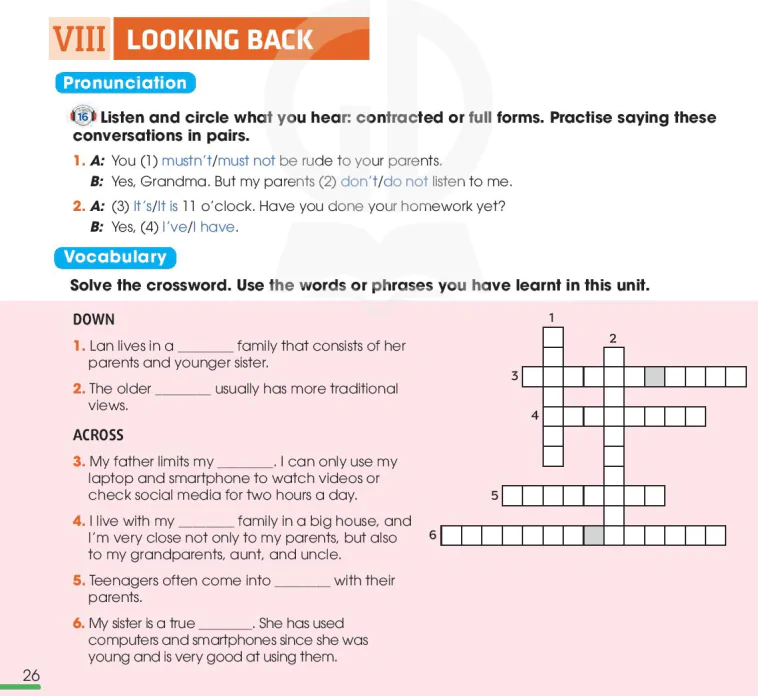
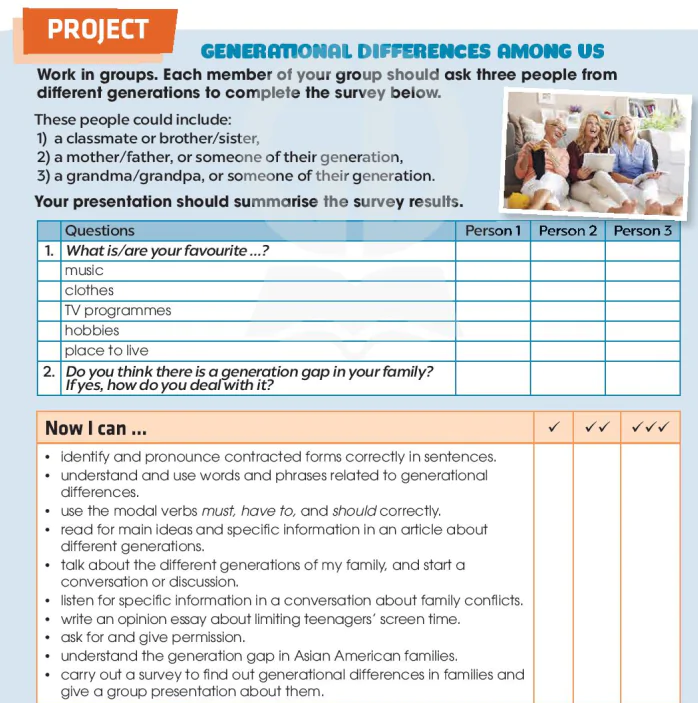

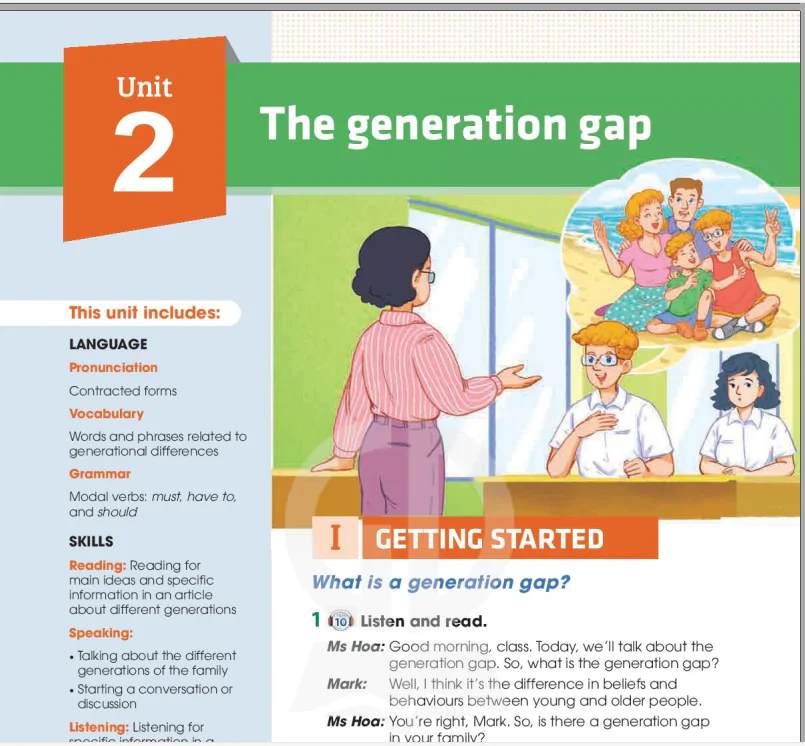
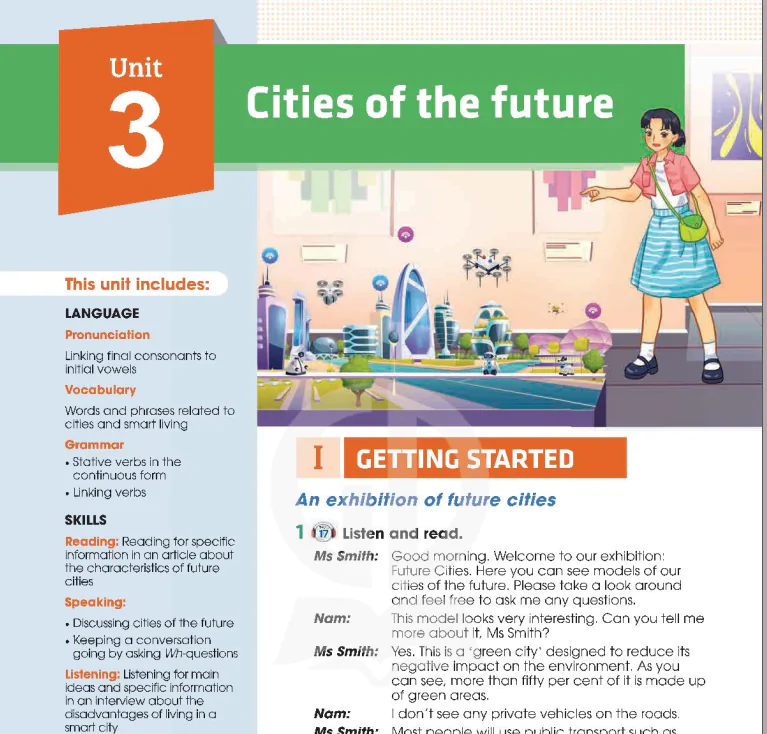
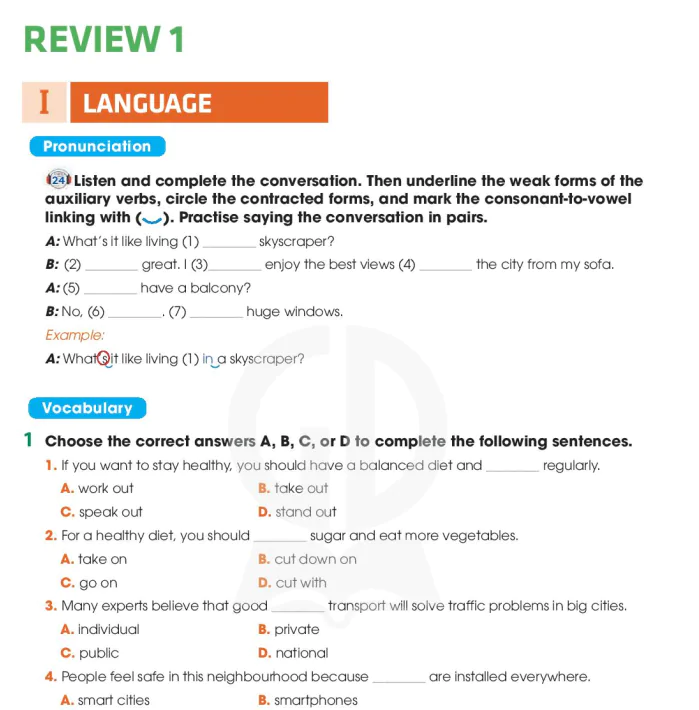
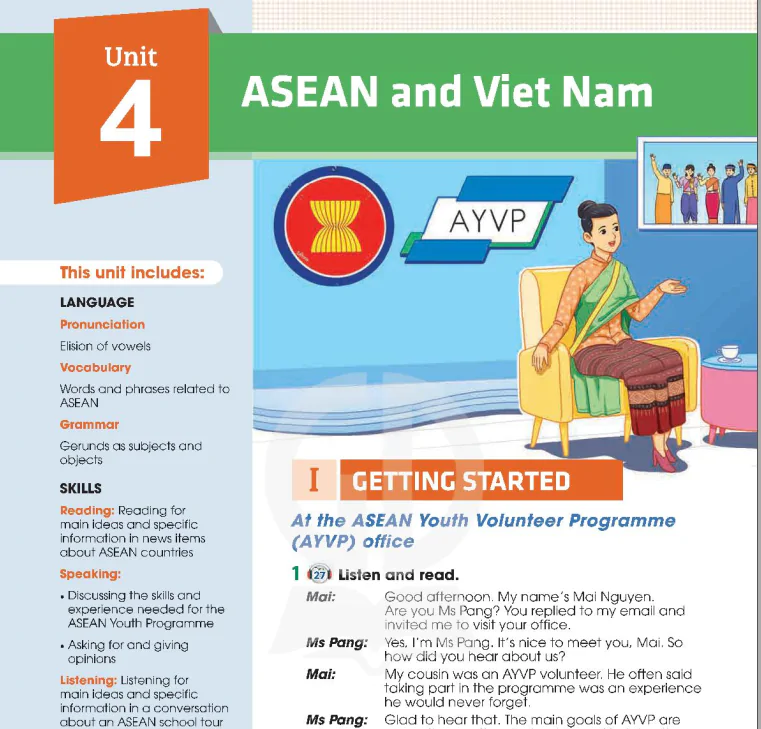


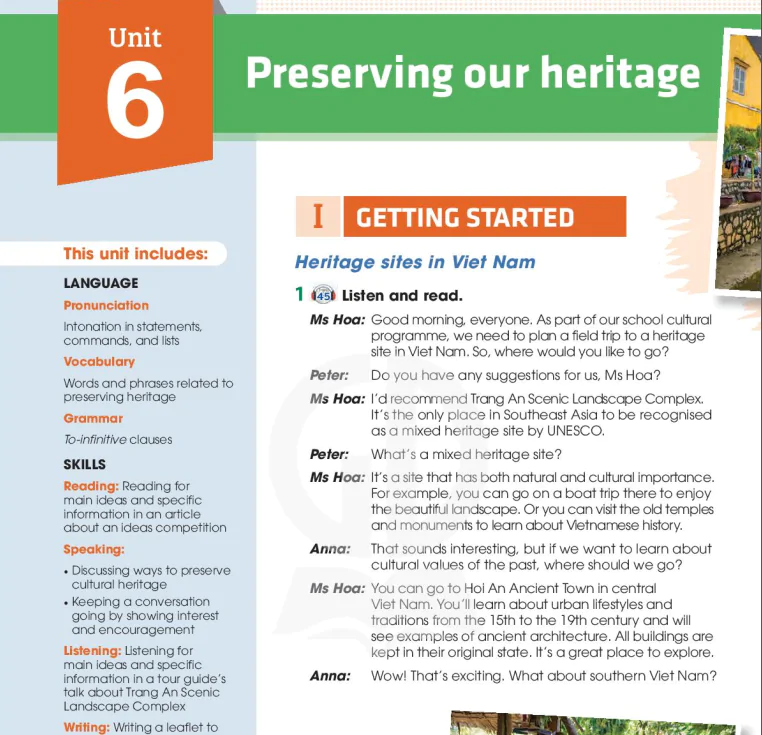
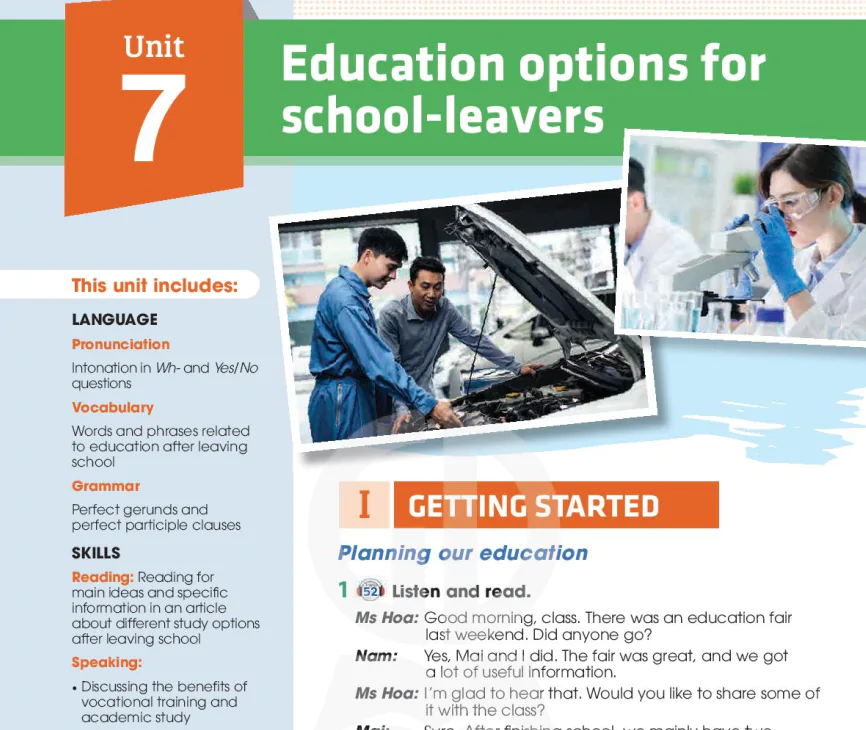
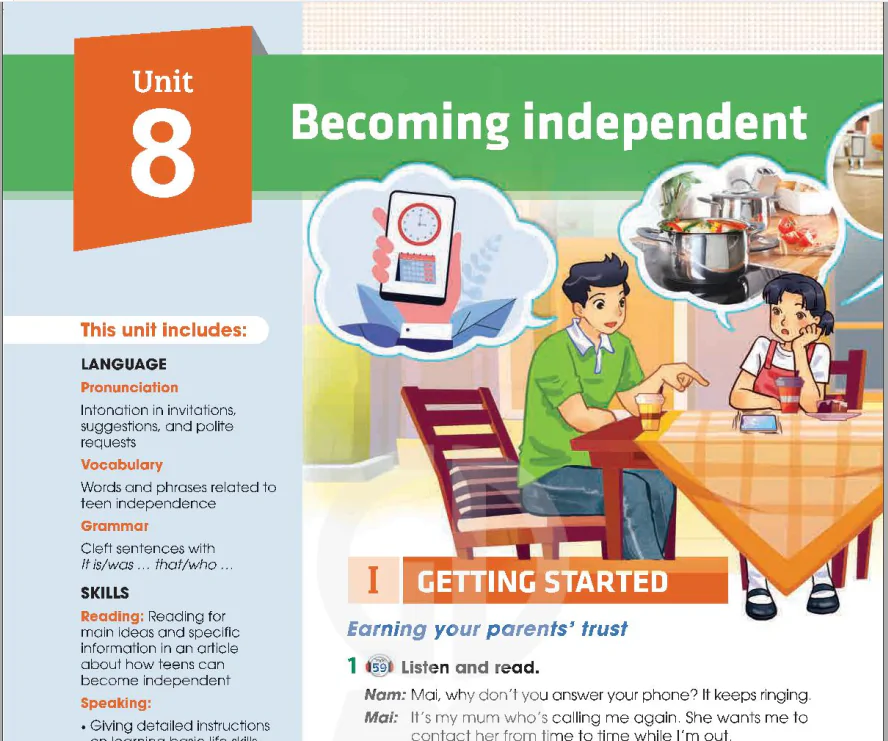
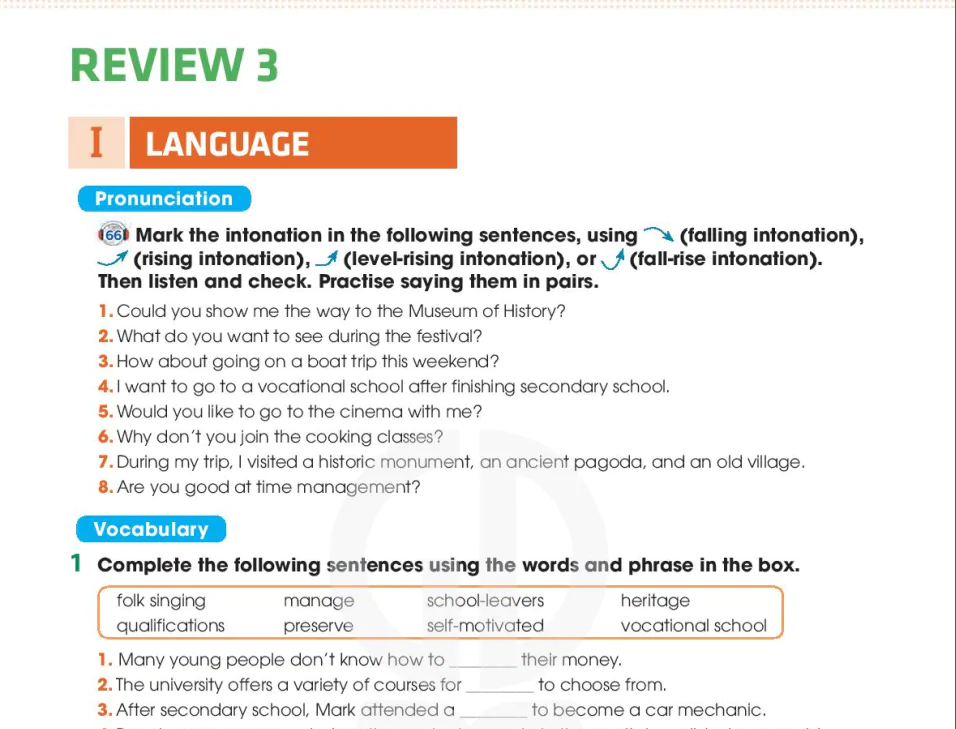
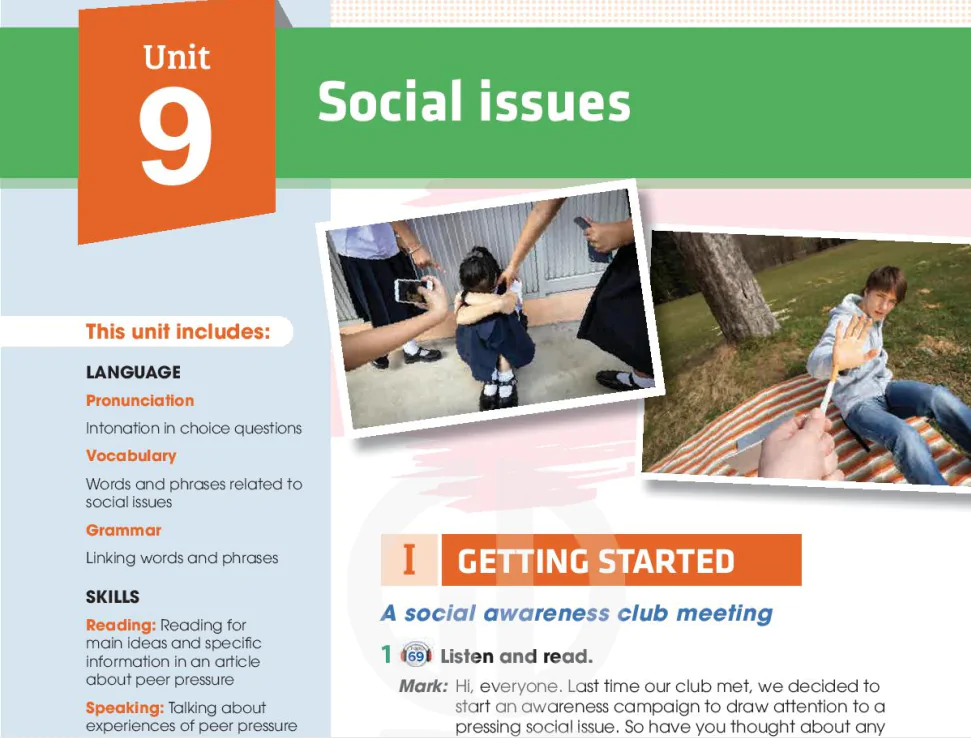
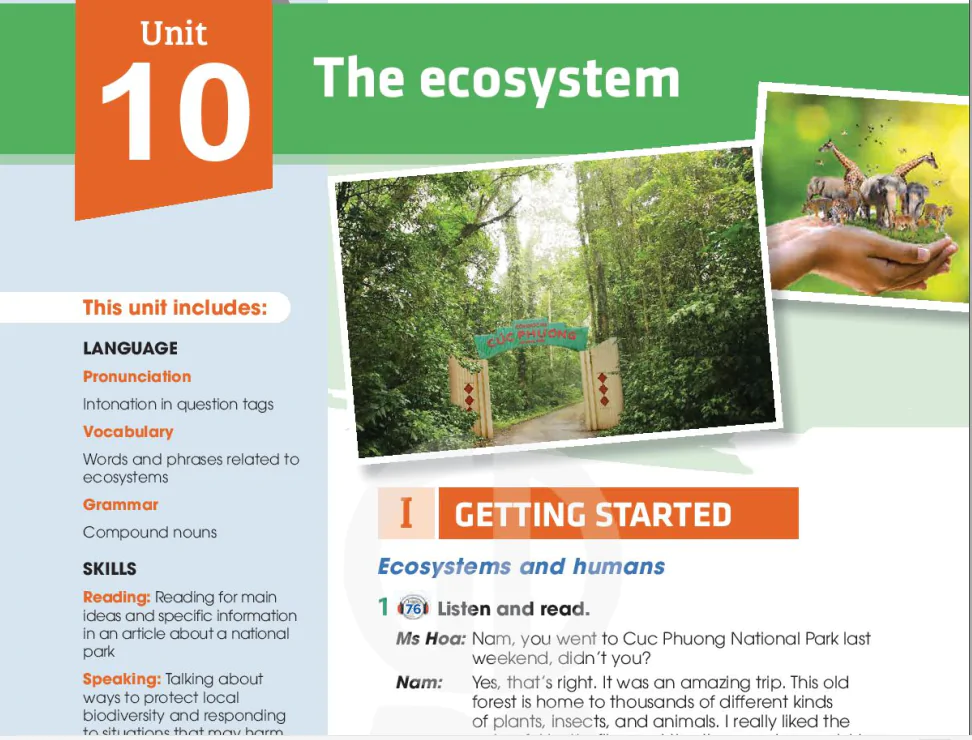
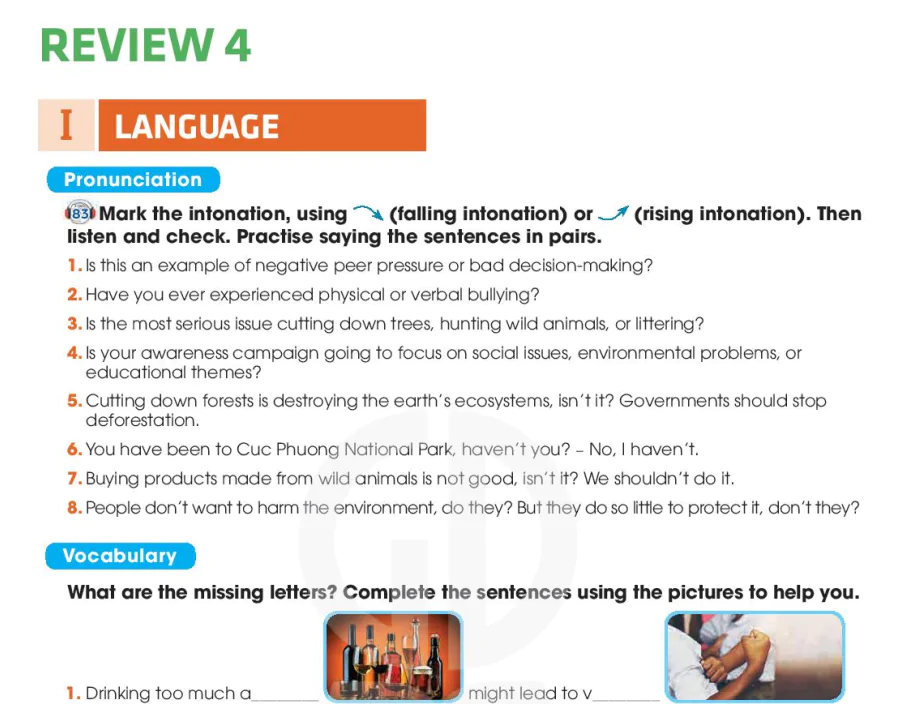
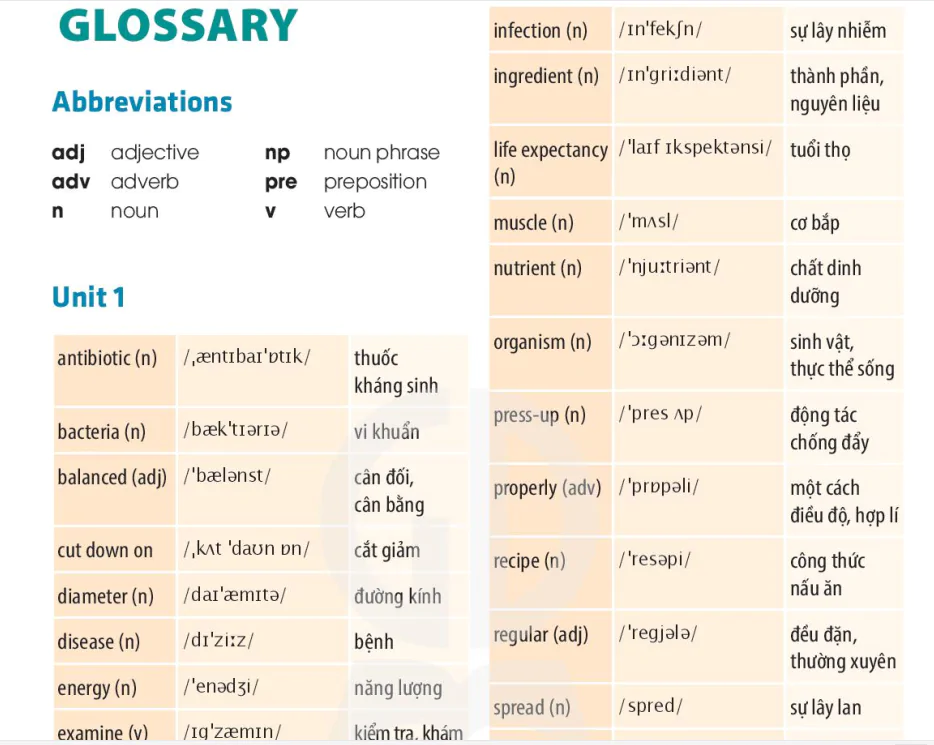
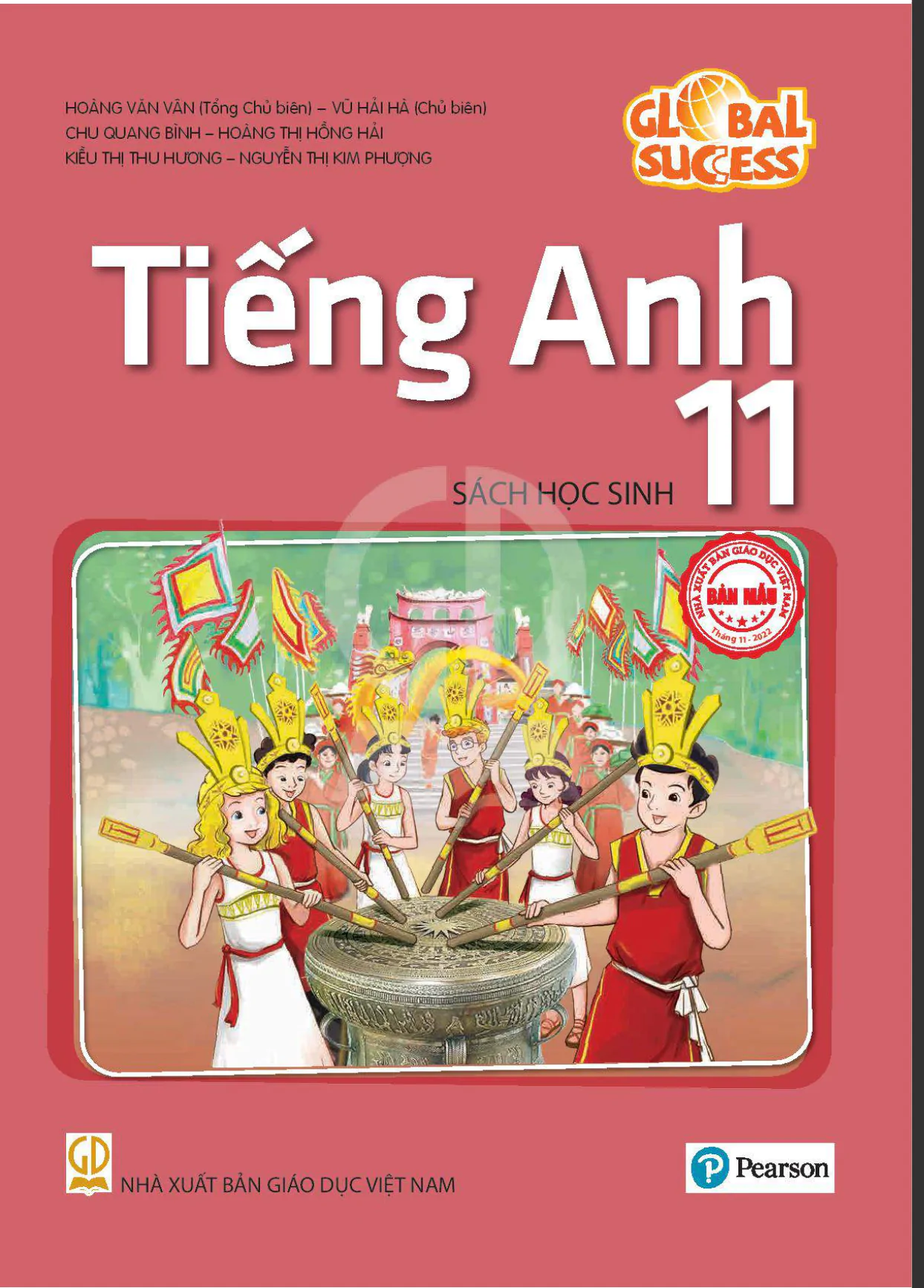

















Bình Luận
Để Lại Bình Luận Của Bạn